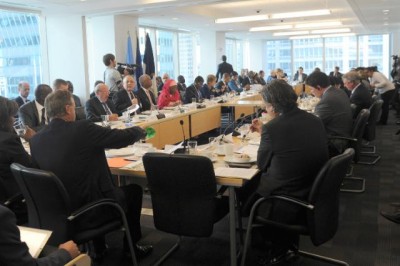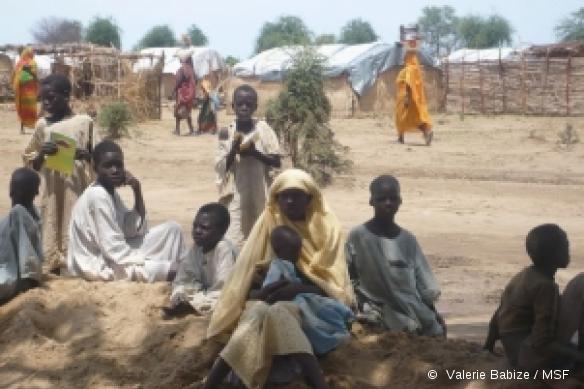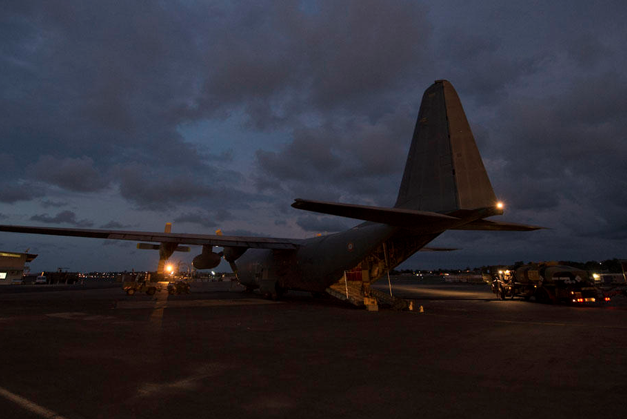In the Central African Republic, significant urgency, discreet lobbying, sustained action

(BRUSSELS2) Meeting in Luxembourg, the EU Foreign Ministers have just called " to a strong, rapid and coordinated mobilization in the face of the crisis in the Central African Republic.
"The European Union is deeply concerned about the situation in the Central African Republic (CAR) where insecurity and the total breakdown of public order are exposing the civilian population, in particular the most vulnerable children, to attacks serious to human rights. The humanitarian situation is alarming: the entire population is considered to be at serious risk. »
These words may seem to come from the usual diplomatic verbatim for a French (or French-speaking) public, connoisseur of the Central African Republic, as it seems obvious that the crisis is serious. But this "evidence" is not shared by all Europeans. Far from there ! In the Central African Republic, although discreet, the action of European diplomacy has been very real and, above all, well coordinated. Details...
Conscious, first
Above all, as an expert in the case explains to B2, it was necessary " raise awareness, interest all European players (and international partners) to this somewhat forgotten crisis”. It was also necessary to resolve a crisis between ECCAS (the Economic Community of Central African States) which considered itself competent to intervene (but did not have the means) and the African Union. A work of diplomatic haute couture that deserves a tip of the hat.
A discreet action
While this subject has only recently and sporadically made the news in the media, the European Union has tackled the problem head-on. " We haven't communicated much. But this question was, very early on and long before there was any public interest in the matter, taken seriously. confirms a senior European diplomat I interviewed. " We have been active on three dimensions of this crisis: security, humanitarian action, economic and social development. » without forgetting the political aspect.
Political visits
The European Commissioner for Humanitarian Aid, Kristalina Georgieva, thus " heavily involved in the case. Lhe "humanitarian" component of the crisis is indeed very strong. After a visit this summer with Valerie Amos, the UN coordinator for humanitarian affairs (OCHA), she returned for a more official visit with the French Minister of Foreign Affairs, Laurent Fabius, a week ago ( Sunday, October 13). Between the two, the meeting organized on the sidelines of the United Nations General Assembly in New York, on September 25, certainly constituted an important political momentum, before a resolution was voted on by the Security Council.
Assessment missions
On the technical side, "several assessment missions have also been sent to the field". First of all, a "mixed" mission of the European diplomatic service (EEAS), made up of military personnel, specialists in development (Devco), humanitarian aid (ECHO), and the various relevant units of the EEAS (geographical unit in particular ) traveled to Bangui. Another mission also went to Addis Ababa to the headquarters of the European Union.
Discreet contacts
European Union delegations and certain bilateral embassies were mobilized to convince, one by one, the African countries of ECCAS that it was in everyone's interest to facilitate the transition between ECCAS and the European Union. Africa for the settlement of this crisis. " It took a little while and it wasn't to won in advance » as admitted by a European who closely followed this negotiation.
And planning help
We can also add to this diplomatic presence, planning assistance led by European officers placed with the African Union (an officer is on site in Addis Ababa) and with ECCAS, the economic community of Central Africa. ).
act right away
As an expert on the case explained to B2, " We must act now and not in three months”. « We are facing a major, acute crisis, where the entire population of the country (even if it is not very numerous, about 4,6 million inhabitants) is affected at the same time. What is rare ". The geographical position of the Central African Republic, between Sudan and the Congo, is crucial. Located on a fault line between Muslims and Christians or animists, it could awaken peaceful conflicts (Chad-Sudan in particular). A country " located at the crossroads of several areas weakened by years of crisis or conflict, by poaching, the presence of foreign armed groups, including the Lord's Resistance Army and by the rise of transnational terrorist threats as the 28 specify in their press release.
To follow on the Club (subscribers): Central African Republic: what the European Union can and will do
For those who want to have an overview of the humanitarian situation, read on the blog "L'humanitaire dans tous ses Etats" by my friend Frédéric Joli of the ICRC in Paris: Central African Republic: the humanitarian situation continues to deteriorate
Read also:
- Central African Republic: Europe ready to support MISCA
- Ashton calls for "restraint" and "dialogue" in the Central African Republic
- Central African Republic: emergency deployment of French reinforcements
- Call by the EU to avoid the use of force in the Central African Republic and for dialogue
- The peace mission in the Central African Republic receives 14 million euros


